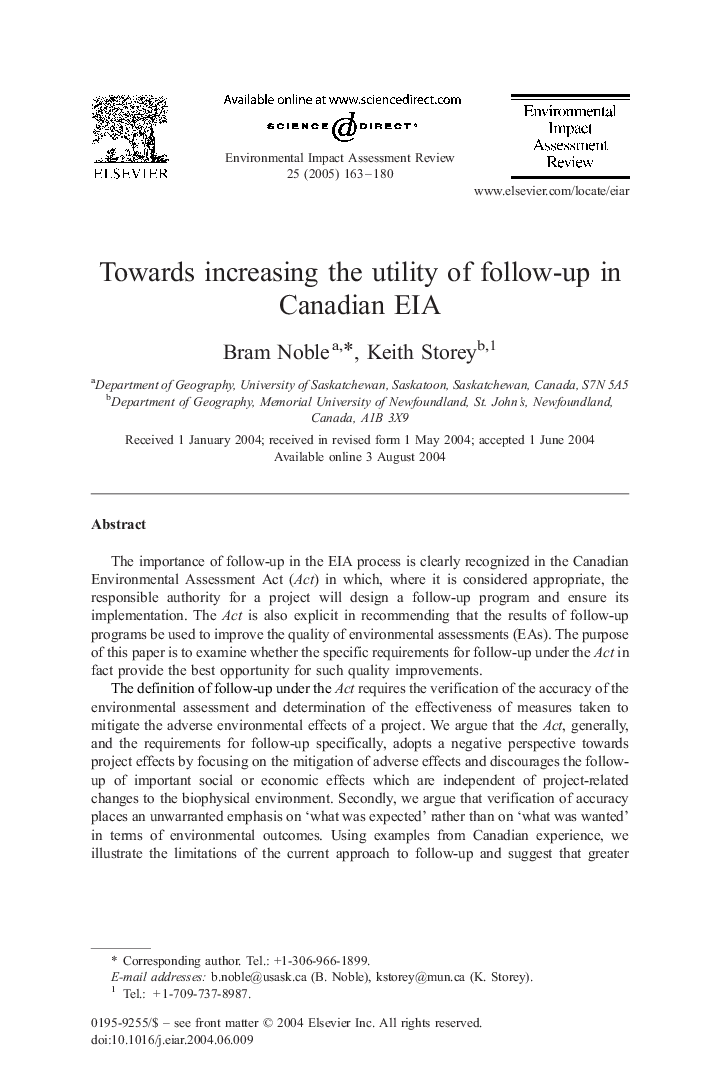| Article ID | Journal | Published Year | Pages | File Type |
|---|---|---|---|---|
| 10504294 | Environmental Impact Assessment Review | 2005 | 18 Pages |
Abstract
The definition of follow-up under the Act requires the verification of the accuracy of the environmental assessment and determination of the effectiveness of measures taken to mitigate the adverse environmental effects of a project. We argue that the Act, generally, and the requirements for follow-up specifically, adopts a negative perspective towards project effects by focusing on the mitigation of adverse effects and discourages the follow-up of important social or economic effects which are independent of project-related changes to the biophysical environment. Secondly, we argue that verification of accuracy places an unwarranted emphasis on 'what was expected' rather than on 'what was wanted' in terms of environmental outcomes. Using examples from Canadian experience, we illustrate the limitations of the current approach to follow-up and suggest that greater utility would be achieved by focusing on whether the environmental objectives of the project in question have been achieved.
Related Topics
Physical Sciences and Engineering
Energy
Renewable Energy, Sustainability and the Environment
Authors
Bram Noble, Keith Storey,
